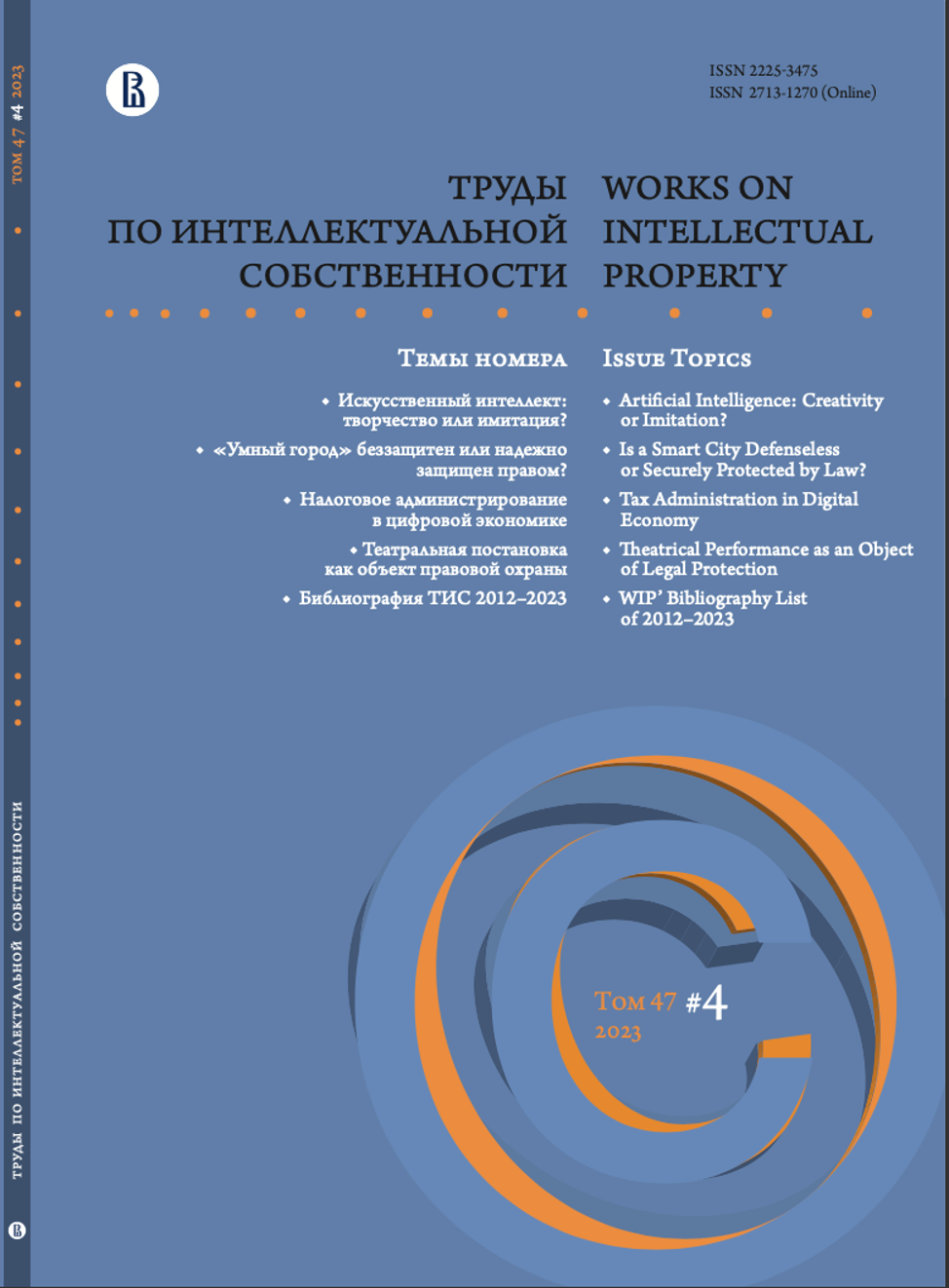THE ROLE OF ARTIFICIAL INTELLIGENCE IN INTELLECTUAL PROPERTY: SOCIAL AND LEGAL PROBLEMS OF CREATIVITY
Abstract
The creation of creative products using generative neural networks and other artificial intelligence technologies has become part of the everyday practice of citizens. This phenomenon naturally raised questions about the attitude of users towards works created directly or using artificial intelligence technologies. The massive adaptation of creative tools, enhanced by artificial intelligence technologies, has updated the discussion in the legal community about the nature and mechanics of creativity, the ownership and distribution of copyrights, and remuneration for the use of works created using such tools. The purpose of this article is to publish and analyze the results of a survey of citizens on the question of their attitude towards creative products that are fully or partially created by artificial intelligence. The research methodology is based on studying respondents’ reactions to questions whose relevance is indicated by scientific literature and the news agenda. The suggested answers represent the most relevant options found in a series of preliminary interviews conducted by organizers with potential voters. The result of this article was the author’s analysis of the results of the targeted research, which made it possible to detect and generalize sociocultural trends in the attitude of citizens to the creativity of artificial intelligence, mentally construct, and predict their development.


